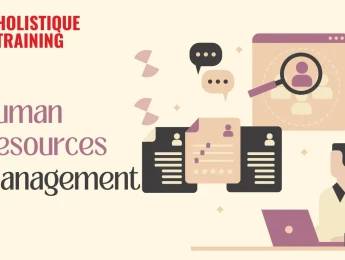Conducting a cost analysis is imperative for enabling strategic decision-making within any organisation. This analytical process provides a comprehensive understanding of the financial implications associated with various business activities, ensuring that resources are allocated efficiently and strategically.
By dissecting and evaluating costs, businesses can identify areas of inefficiency, optimise resource allocation, and enhance overall financial performance. Cost analysis enables management to make informed decisions regarding product pricing, budget allocation, and resource utilisation.
It also aids in assessing the profitability of different business segments and guiding strategic initiatives for growth or restructuring. In an ever-evolving business landscape, where competition is fierce and resources are finite, a thorough cost analysis serves as a crucial tool for executives and decision-makers to navigate complexities, mitigate risks, and drive the organisation towards sustainable success ahead of the competition.
Upon completion of this course, participants will be able to:
- Understand complex strategies for improving the bottom line.
- Strengthen your awareness of costs and align them with strategic goals.
- Explore detailed techniques for cost analysis and performance measurement.
- Transition from cost evaluation to strategic alignment and performance measurement.
- Expand your expertise in management accounting.
- Provide decision-makers with more timely and valuable information.
- Recognise and oversee crucial financial and non-financial indicators for the business.
This course is designed for anyone responsible for making decisions based on budget or employees dedicated to providing accurate data analysis to aid in achieving strategic goals. It would be most beneficial for:
- Business Owners
- Directors
- Operations Managers
- Finance Manager
- Chief Financial Officers
- Data Analysts
- Business Analysts
- Accountants
- Project Planners
This course uses a variety of adult learning styles to aid full understanding and comprehension. Participants will view various concepts of cost analysis and discover how to incorporate them to secure a budget or utilise throughout a project plan.
They will review systems and technology that can help with evolving cost analyses and help to determine the best course of action to make a strategic decision. Participants will then work together with a budget to determine how each element of the funds could be spent to achieve a positive return on investment in order to secure grants or donor funding.
Day 5 of each course is reserved for a Q&A session, which may occur off-site. For 10-day courses, this also applies to day 10
Section 1: Understanding the Links Between Strategy & Costs
- The relationship between business strategy and cost management.
- Analysing cost implications in strategic decision-making.
- Strategic cost management for sustainable business growth.
- Integrating cost control measures into strategic planning.
- Cost-effective strategies for market competitiveness.
Section 2: Cost Analysis Classifications
- Aligning organisational goals with cost management objectives.
- Case studies on successful strategies and cost optimisation.
- Evaluating the impact of strategic changes on overall costs.
- Implementing cost-effective measures in strategic initiatives.
- Developing a strategic cost management framework.
Section 3: From Accounting to Project Planning
- Integrating financial analysis into project planning processes.
- Project budgeting and financial forecasting for accountants.
- Using accounting data for effective project resource allocation.
- Risk management and financial considerations in project planning.
- Project cost tracking and reporting for accounting professionals.
- Collaborative communication between accounting and project teams.
Section 4: Data Management Systems
- Types of data management systems: relational databases, NoSQL, and more.
- Database design principles for effective data organisation.
- Data modelling and schema development in database systems.
- Query languages and data retrieval techniques.
- Security considerations in data management systems.
- Data integrity and quality assurance in database operations.
- Backup and recovery strategies for robust data management.
- Integration of data management systems with business applications.
- Emerging trends in data management: Big Data, cloud databases.
Section 5: Communicating a Cost Analysis to Stakeholders
- Crafting compelling narratives for different stakeholder audiences.
- Using visual aids and data visualisation techniques in cost presentations.
- Tailoring communication strategies to engage diverse stakeholder groups.
- Addressing stakeholder concerns and questions in cost analysis discussions.
- Strategies for presenting cost analysis findings in meetings and reports.
- Incorporating storytelling techniques to enhance stakeholder comprehension.
Section 6: Evaluation & Reporting
- Using variance reports.
- Utilising key performance indicators (KPIs) for cost analysis reporting.
- Integrating feedback loops for continuous improvement in cost analysis.
- Compliance and regulatory considerations in cost analysis reporting.
- Presenting cost analysis reports to diverse stakeholder groups.
Section 7: Linking Your Costs to Your Actions
- Utilising cost-benefit analysis for informed decision-making.
- Decision models and frameworks in relation to cost analysis.
- Balancing short-term cost considerations with long-term objectives.
- Incorporating risk and uncertainty in decision-making based on cost analysis.
- Scenario analysis and sensitivity testing for decision support.
Upon successful completion of this training course, delegates will be awarded a Holistique Training Certificate of Completion. For those who attend and complete the online training course, a Holistique Training e-Certificate will be provided.
Holistique Training Certificates are accredited by the British Assessment Council (BAC) and The CPD Certification Service (CPD), and are certified under ISO 9001, ISO 21001, and ISO 29993 standards.
CPD credits for this course are granted by our Certificates and will be reflected on the Holistique Training Certificate of Completion. In accordance with the standards of The CPD Certification Service, one CPD credit is awarded per hour of course attendance. A maximum of 50 CPD credits can be claimed for any single course we currently offer.
- Course Code PO4-117
- Course Format Classroom, Online,
- Duration 5 days












